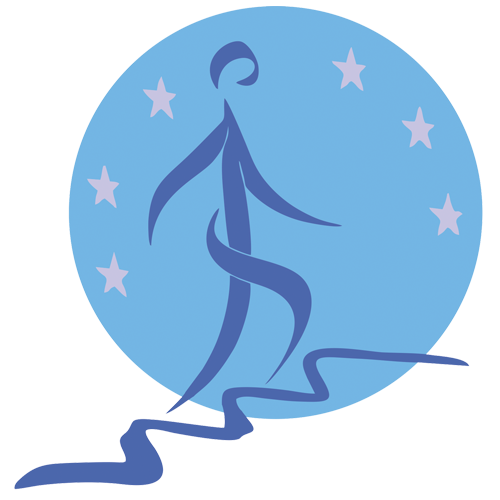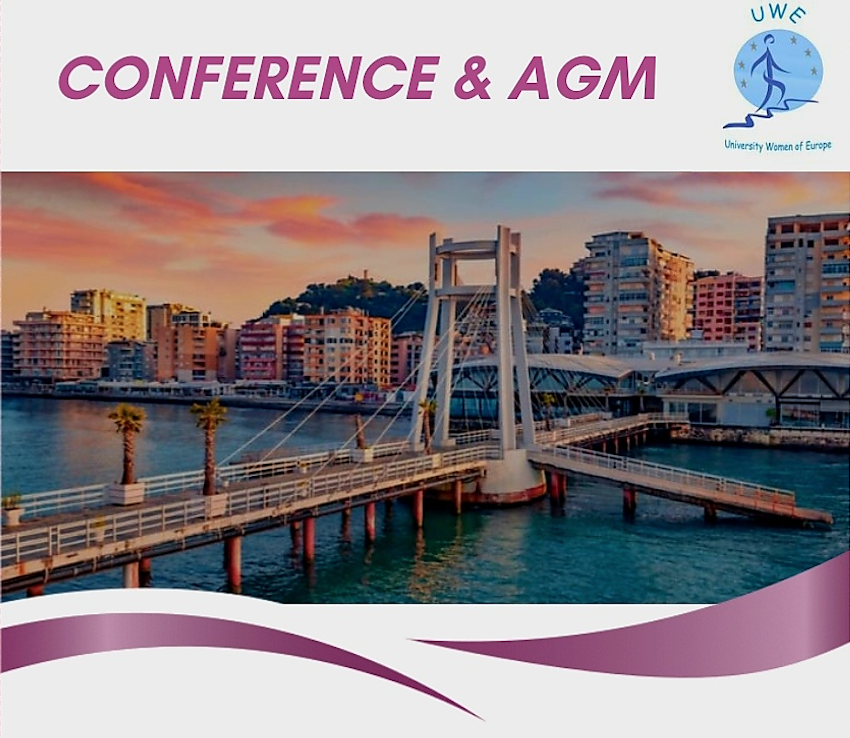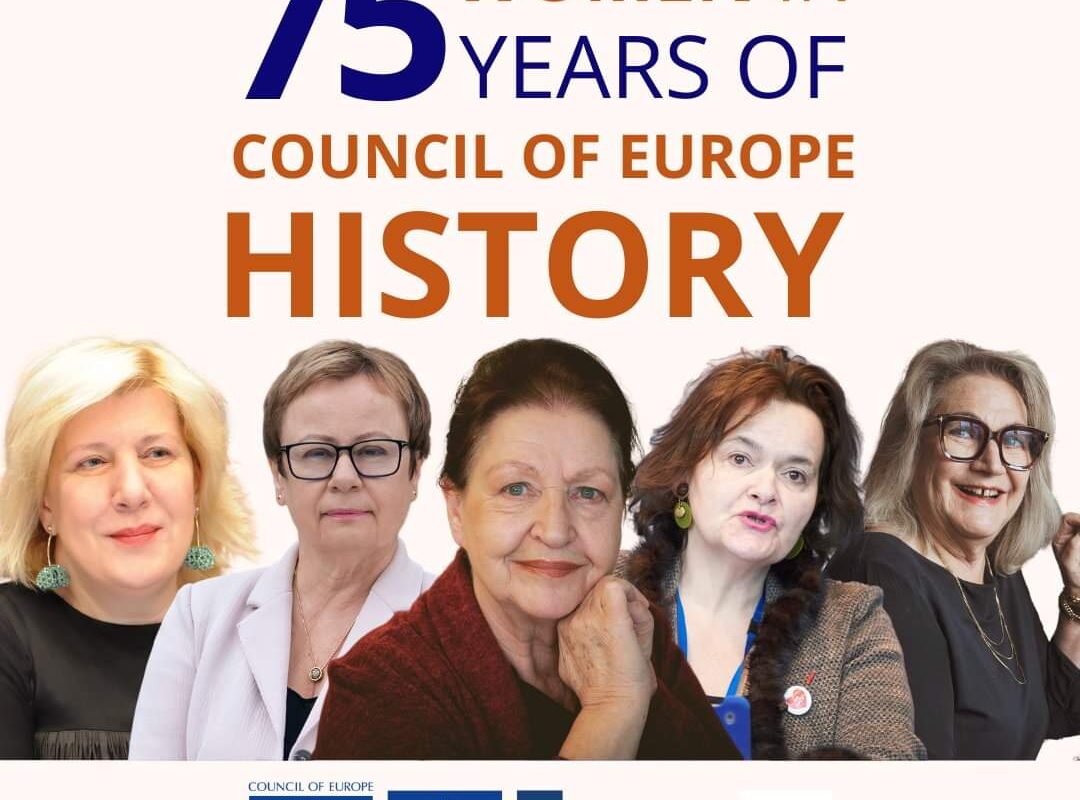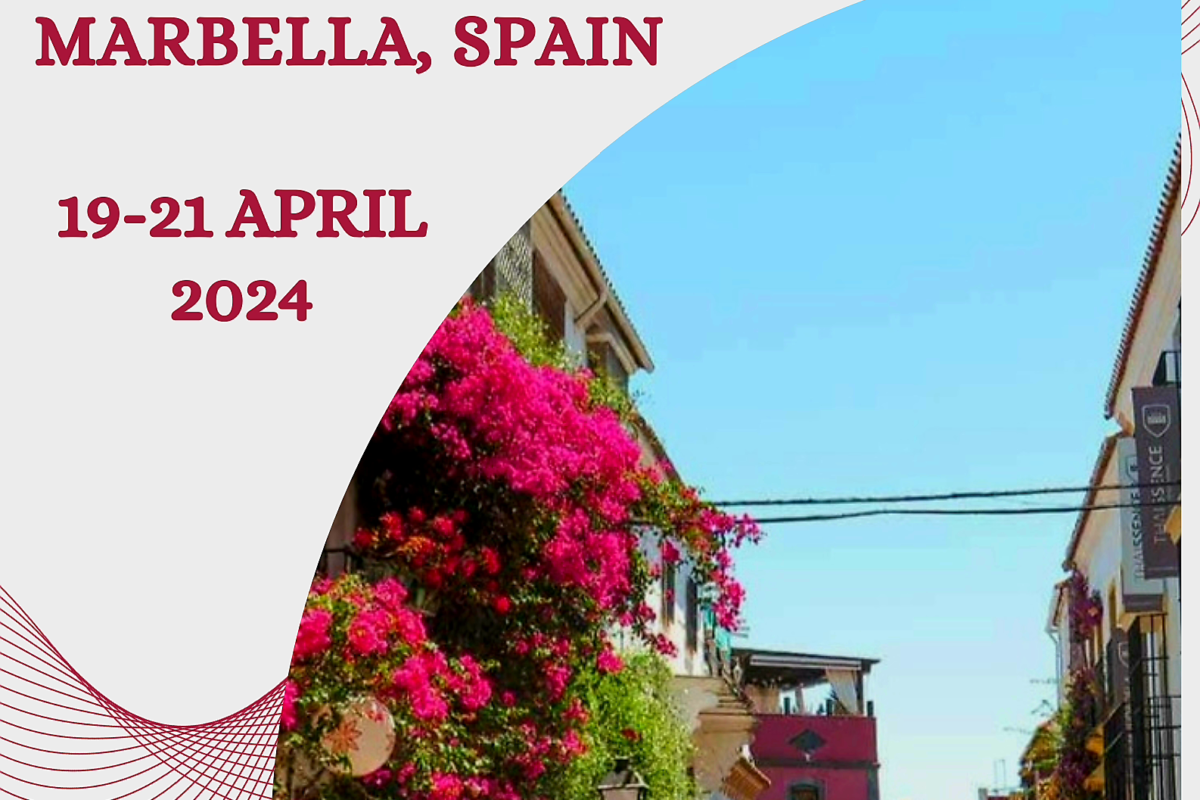On June 24, the International Day of Women in Diplomacy, it was inaugurated “75 Women in 75 Years of Council of Europe History” exhibition at the Council of Europe headquarters in Strasbourg. The exhibition is a tribute to the many women, often unknown, who have been part of the Council of Europe since its creation.
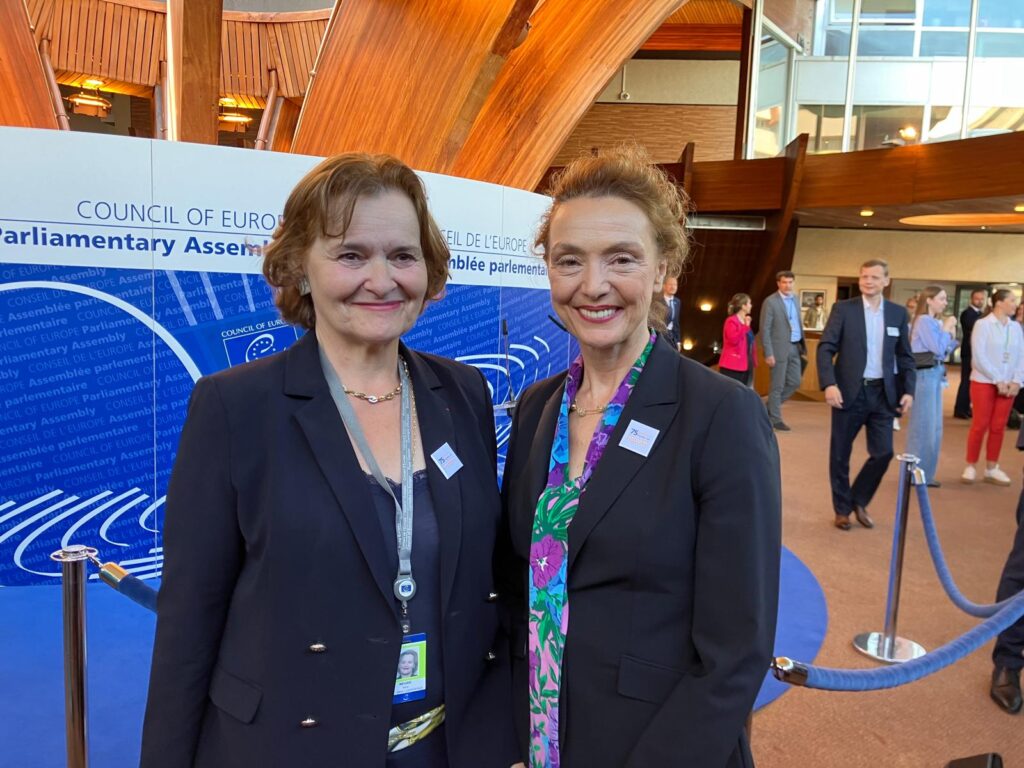
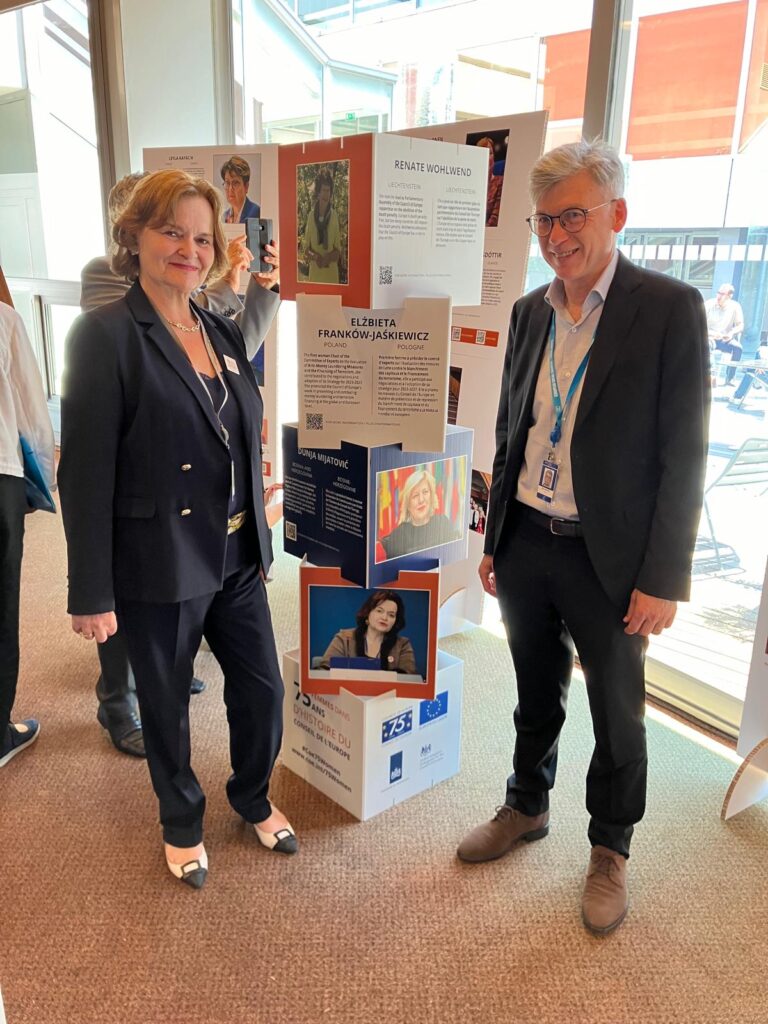
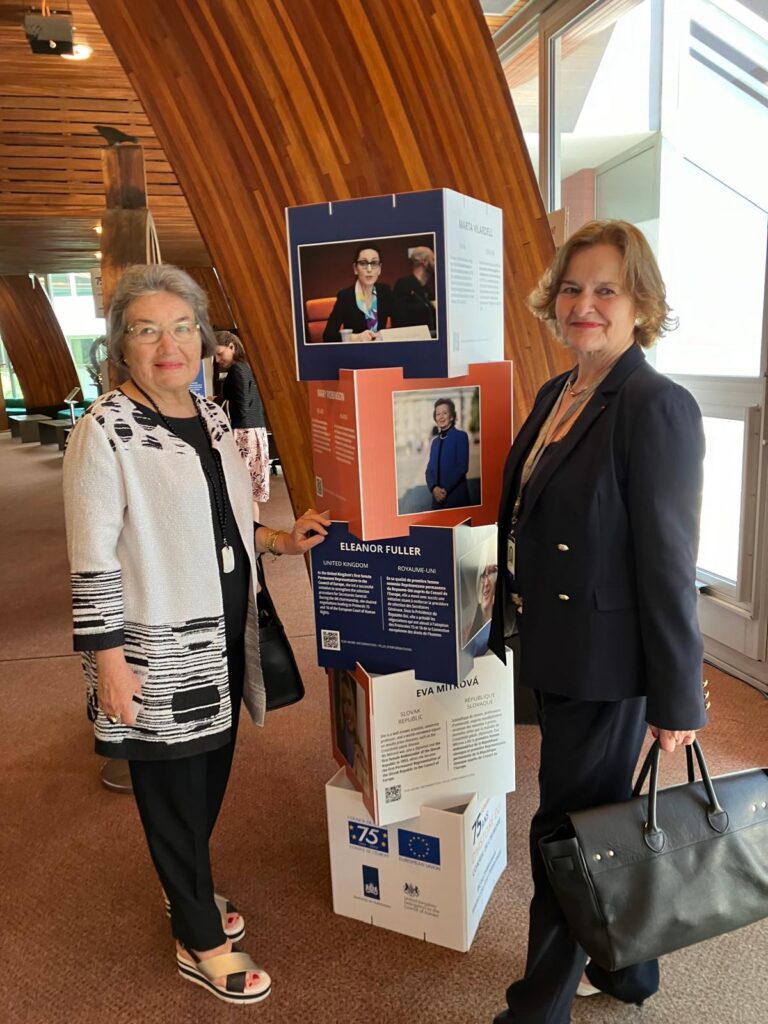
Let’s meet three outstanding women who have made significant contributions to women’s rights and for University Women of Europe: President Anne Nègre, Ferida Acar from Turkey and Mary Robinson from Ireland.
Dr. Anne Nègre – FRANCE
Thanks to the invaluable personal contribution from Anne Nègre, the European Committee of Social Rights, the supervisory body of the European Social Charter, adopted 15 decisions on State compliance with the right to equal pay and the right to equal opportunities in the workplace, as well as on the representation of women in decision-making positions in private companies.
The complaints, filed under the collective complaints procedure by the international NGO University Women Europe (UWE), concerned 15 states that accepted collective complaints at the time. 14 of these 15 States were found to be in breach of one or more of their obligations to guarantee the right to equal pay and the right to equal opportunities in the workplace.
Following this, the Committee of Ministers adopted recommendations addressed to the 14 States in question, together with a general statement on the subject. Thanks to the efforts of Anne Nègre and the UWE, these unprecedented achievements marked a turning point in terms of the procedures and outcomes of collective complaints and their follow-up, and reaffirmed the principles that should guide gender equality.
Mrs. Mary Robinson – IRELAND
As an academic, legislator and barrister, Mary Robinson has always sought to use law as an instrument for social change, arguing cases before domestic and European courts. This includes the landmark case Norris v. Ireland in 1988 before the European Court of Human Rights, which found that the law criminalising homosexual acts had no proper justification, and therefore breached Mr Norris’ right to a private life. The judgement acted as a catalyst for profound societal change in Ireland, leading to the Marriage Equality referendum in 2015.
In 1990, Mary Robinson was elected Irish President, the first woman to do-so and served as a principled and transformative leader who fought for equality and women’s rights throughout her time in office. In her capacity as President, she addressed the Parliamentary Assembly in 1994 highlighting the vital role of the Council of Europe: “What makes the Council of Europe special […] is its concern with values. At the centre of those values is the human being. From this everything else radiates.”
Most recently in 2022, Ms Robinson chaired a High-Level Reflection Group which produced a report on the future of the Council of Europe, calling for a Summit of Heads of State and Government. The report presented thirty recommendations to enable the Council of Europe to respond effectively to the war in Ukraine. Now Chair of The Elders, Ms Robinson continues to advocate for gender equality, women’s participation in peace-building, human dignity and climate justice.
Dr. Feride Acar – TURKEY
For nearly 15 years, Feride Acar contributed to the violence against women policy agenda of the Council of Europe sharing freely of her knowledge, academic background, dedication and experience on the UN Committee on the Elimination of Discrimination against Women (CEDAW).
From promoting the idea of a strong violence against women convention as a member of the Council of Europe Task Force to Combat Violence against Women, including Domestic Violence (2005-2008), to negotiating the Istanbul Convention as the Turkish Delegate (2009-2011), and later as GREVIO’s first president, she worked to develop and institutionalise path-breaking European standards to combat violence against women. Bringing her feminist conviction and deep knowledge of women’s rights globally and regionally to the work of the Council of Europe Group of Experts on Violence against Women and Domestic Violence (GREVIO), she was instrumental in breathing life into the Istanbul Convention.
A rather unknown treaty at the beginning of her presidency in 2015, the Istanbul Convention made headlines by the end of it. Feride Acar worked to ensure that GREVIO adopts strong and well-functioning working methods. Under her leadership, GREVIO’s monitoring work has come to result in a deeper understanding of the aims and principles of the Istanbul Convention among government stakeholders and NGOs alike.
In her efforts, she always tried to make the link between United Nations and Council of Europe norms and processes. Her experience on the UN CEDAW Committee enabled a level of cross-fertilisation between CEDAW and GREVIO that both still benefit from, most notably because of her role in drafting General Recommendation No.35 updating CEDAW General Recommendation No.19 on violence against women.
To learn more about this exhibition and the project “75 Women in 75 Years of the Council of Europe History”, please visit website: www.coe.int/75women
Let’s continue to make waves and empower women globally!

